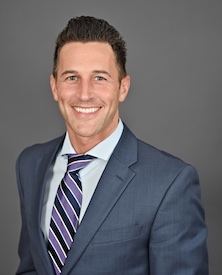What Really Works and What Doesn’t for Hair Loss Treatment
When it comes to hair loss, it’s easy to get overwhelmed by the sheer number of products claiming to “cure” or “reverse” hair thinning. From shampoos to miracle oils, it can feel like there’s always something new promising to bring your hair back. But, as a hair restoration specialist, I want to be completely transparent: most of these claims are simply not backed by science.
 Here at Leonard Hair Transplant Associates, we base our recommendations on what we know works—and it’s not magic potions or gimmicky products you might see on TV, social media or email marketing. The truth is, only a few treatments have been proven effective in stabilizing hair loss and promoting regrowth.
Here at Leonard Hair Transplant Associates, we base our recommendations on what we know works—and it’s not magic potions or gimmicky products you might see on TV, social media or email marketing. The truth is, only a few treatments have been proven effective in stabilizing hair loss and promoting regrowth.
Let’s break down the treatments that I, as a physician, confidently recommend for patients dealing with hair loss:
- Platelet-Rich Plasma (PRP) with ACell
This combination is a game-changer. PRP involves using your own blood’s growth factors to stimulate hair follicles, while ACell enhances the body’s natural healing process. Together, these can significantly improve hair density and help prevent further thinning. - Rogaine (Minoxidil)
Available as a topical solution, Rogaine is one of the few FDA-approved treatments that has been shown to both slow hair loss and promote regrowth. It works by stimulating blood flow to the hair follicles, which helps keep them active. - Propecia (Finasteride)
For men, Finasteride is another FDA-approved option. This oral medication targets the hormone responsible for hair thinning—DHT. By reducing DHT levels, Propecia helps prevent further loss and can even thicken existing hair. - Laser Therapy
Low-level laser therapy (LLLT) is a non-invasive treatment that uses light energy to stimulate hair follicles and stabilize further progression of hair loss.
Now, what about those shampoos, serums, or “miracle” supplements claiming to stop hair loss? Unfortunately, there’s little to no scientific evidence supporting these claims. While a good shampoo can help maintain the overall health of your hair, it won’t prevent or reverse hair loss. No over-the-counter shampoo can penetrate deep enough to target hair follicles where true hair growth happens.
If you’re noticing signs of hair thinning, the best course of action is to seek out proven treatments. I encourage anyone concerned about their hair loss to schedule a consultation, either in person or virtually, with our team at Leonard Hair Transplant Associates. We’ll give you honest answers, guide you through effective treatment options, and help you avoid the marketing traps.
Dr. Matthew Lopresti

